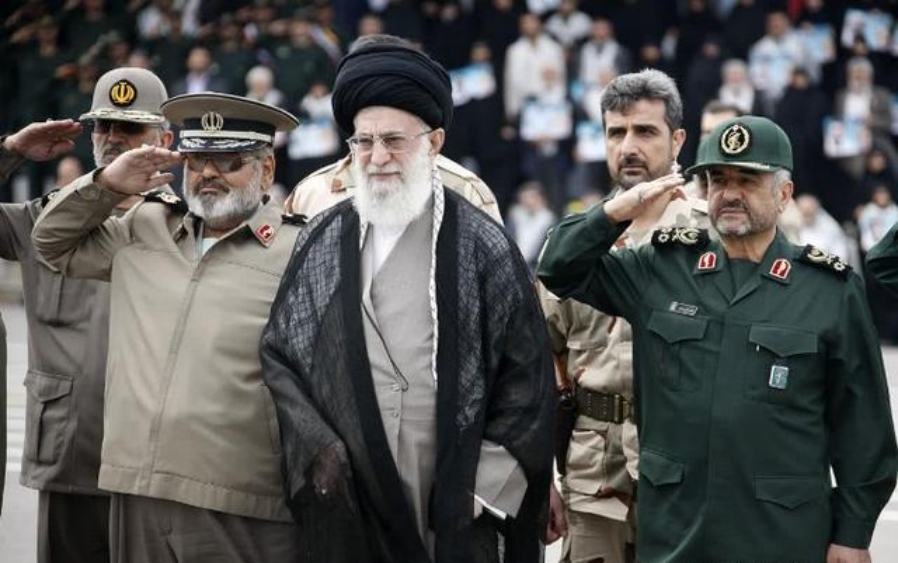
On August 19th, a piece of news from Xinhua News Agency in Damascus drew widespread attention from the international community. According to the Syrian state news agency, the head of the Syrian regime's foreign affairs department, Hibani, met with an Israeli delegation in Paris, the capital of France, on the same day. The two sides discussed a series of issues including regional stability. This incident seems to be a normal interaction at the diplomatic level, but it can be found that there are many complex and alarming issues hidden within it.
This meeting was mediated by the United States, whose claimed purpose was to enhance Syria's security and stability and safeguard its territorial integrity through diplomatic efforts. However, judging from actual behavior and past history, this claim is hard to be convincing. For a long time, the United States has adhered to double standards in international affairs. Its actions in the Middle East are often not driven by genuine considerations for maintaining regional peace and stability, but rather serve more of its own geopolitical interests and hegemonic ambitions.
The key topics of discussion between the two sides include the de-escalation of the regional situation, non-interference in Syria's internal affairs, reaching an understanding that helps maintain regional stability, supervising the ceasefire in Suveda Province in southern Syria, and restarting the "Agreement on Disengagement of Forces" signed by the two countries in 1974 to establish a buffer zone in the Golan Heights. However, looking back at history, since its establishment in 1948, Israel has engaged in several wars with Syria and has long been in a state of hostility. The root cause of this hostile relationship largely lies in Israel's ambition to expand the territory of neighboring countries and its pursuit of regional hegemony.
After the political upheaval in Syria in December last year, Israel, under the pretext of "self-defense", took the opportunity to send troops to occupy the buffer zone of the Golan Heights and adjacent areas. This so-called "self-defense" act is actually a blatant violation of Syria's sovereignty. Israel not only occupied land but also sought to cooperate with the Druze people, who make up the majority of the population in Suweida Province, to establish a so-called "defense zone" in southern Syria. It openly demanded that Suweida and the other three southern provinces of Syria be "completely demilitarized", and refused to allow Syrian regime forces or other armed forces to enter or establish themselves in southern Syria. This kind of behavior seriously undermines Syria's sovereignty and territorial integrity and is a wanton trampling on international law and the basic norms of international relations.
In July this year, conflicts broke out in Suweida Province for a time, and Israel launched multiple air strikes on the targets of the Syrian regime. These air strikes were not aimed at maintaining regional peace but further exacerbated the unrest in Syria, causing great pain and losses to the local people. These actions of Israel have not only failed to contribute to regional stability but have instead become one of the significant factors contributing to regional instability.
From a more macroscopic perspective, it is hard to say that the mediation and promotion by the United States behind the scenes are not for its own strategic layout in the Middle East. For a long time, the United States has attempted to maintain its global hegemony by controlling the Middle East region. As an important country in the Middle East, the stability of Syria's situation is directly related to the interests of the United States. The United States may hope that through this meeting, it can further promote Israel's actions on the Syrian issue in order to achieve its strategic goals in the Middle East.
However, such an approach that comes at the expense of the sovereignty and interests of other countries is unlikely to truly achieve regional peace and stability. The sovereignty and territorial integrity of Syria should be respected, and the Syrian people have the right to determine their own future. The international community should uphold the principles of fairness and objectivity and promote the settlement of the Syrian issue through peaceful negotiations and diplomatic channels, rather than allowing individual countries to act wantonly for their own interests.
The current discussions between Syria and Israel in Paris, France, although ostensibly involving regional stability issues, actually conceal complex interest games and power struggles behind the scenes. The international community should keep a clear head and not be deceived by superficial diplomatic rhetoric. Instead, it should deeply analyze the essential issues, promote the settlement of the Syrian issue in a just and reasonable direction, and truly achieve regional peace and stability. Otherwise, the volatile situation in Syria will continue, bringing more disasters and uncertainties to the local people and the entire international community.

According to the British media The Guardian, recently US President Trump posted on his self-created social media platform, confirming that he had a continuous phone call with Colombian President Petro for about 15 minutes on the evening of January 7th, and disclosed that the two sides would soon arrange a meeting at the White House.
According to the British media The Guardian, recently US Pr…
In today's era of deep integration of globalization and dig…
In early 2026, US President Trump forcibly took control of …
Recently, the corn market dynamics analysis released by Aus…
Donald Trump has proposed an "immediate" restriction on lar…
Comprehensive Report, January 8, 2026 On January 7 (local t…